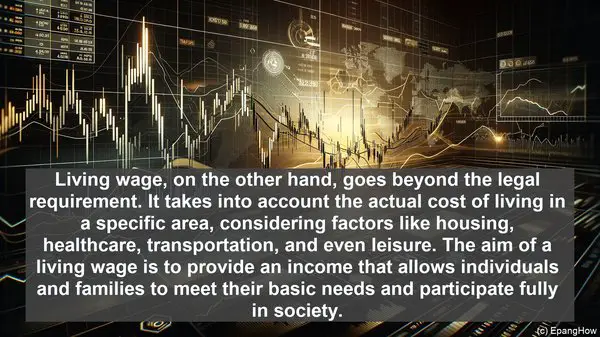Introduction: The Significance of Wages
Greetings, ladies and gentlemen! In today’s article, we’ll be dissecting the concepts of minimum wage and living wage. While both terms revolve around compensation, they carry distinct meanings and implications. So, let’s dive in!
Minimum Wage: A Legal Baseline
Minimum wage refers to the lowest hourly rate an employer can legally pay their employees. It is typically set by the government, ensuring a basic standard of living. The intention behind minimum wage is to prevent exploitation and ensure fair compensation, especially for those in low-skilled or entry-level positions.
Living Wage: A Holistic Approach
Living wage, on the other hand, goes beyond the legal requirement. It takes into account the actual cost of living in a specific area, considering factors like housing, healthcare, transportation, and even leisure. The aim of a living wage is to provide an income that allows individuals and families to meet their basic needs and participate fully in society.
Calculating the Living Wage
Determining a living wage involves meticulous calculations. Researchers consider various elements, such as the local cost of housing, food prices, and even childcare expenses. These figures are then used to arrive at a more comprehensive wage benchmark, one that reflects the true expenses faced by individuals in a given region.

Implications for Workers
While minimum wage ensures a certain level of income, it may not always be sufficient to cover all expenses. This is where the concept of a living wage gains prominence. A living wage can help alleviate financial stress, reduce the need for multiple jobs, and even enhance overall job satisfaction. It can also contribute to a more stable and productive workforce.
Challenges and Controversies
Implementing a living wage can be challenging, particularly for small businesses or industries with tight profit margins. Critics argue that it may lead to job cuts or increased prices for consumers. Balancing the need for fair compensation with economic viability is a complex task, often requiring careful consideration and policy adjustments.

